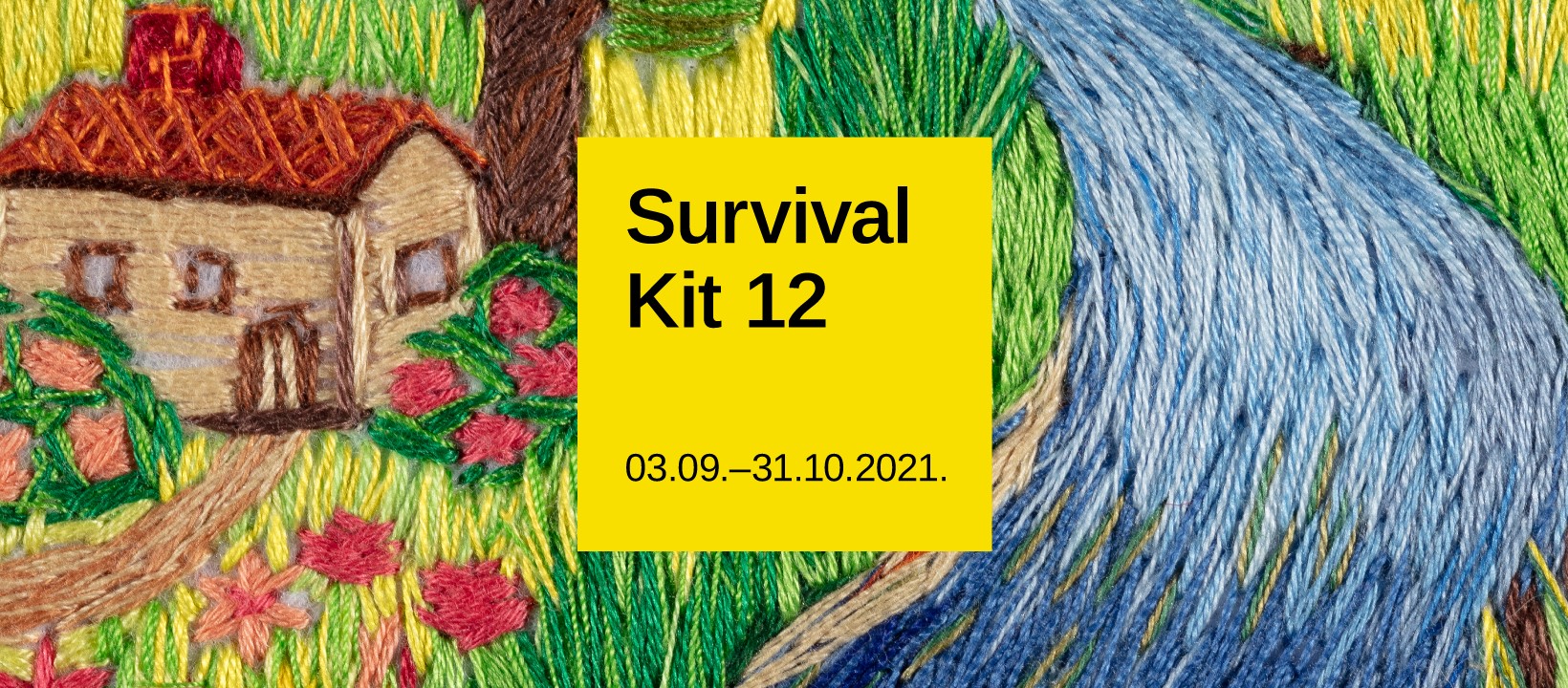
For the twelfth year in a row, the Latvian Centre for Contemporary Art is organising the international art festival Survival Kit that will take place from 3 September to 31 October 2021.
This year it will be in a different format. Instead of visiting empty and abandoned buildings, visitors will be invited to go to Riga’s memorial museums. The selection of the festival venues will also help to reveal its theme, drawing attention to individual stories in the context of collective memory, questions about the aging of society and the infrastructures of care.
Festival venues: Jānis Akuraters Museum, Krišjānis Barons Museum, Rainis and Aspazija House, Janis Rozentāls and Rūdolfs Blaumanis Museum, Andrejs Upītis Memorial Museum, Ojārs Vācietis Museum, Romans Suta and Aleksandra Beļcova Museum, Eduards Smiļģis Theatre Museum and Hotel Neiburgs.
Life has never fully submitted to the structures that seek to manage and administer it. It has always succeeded in avoiding this condition, even today, when more than ever, a comprehensive issue of survival and aging has become increasingly important. The metaphor of the “survival kit” suggests a series of questions: How to live in an aging society where discrimination based on one’s age, structural changes in terms of work and care, and – on top of everything, – the virus, co-exist? How can problems, which have been caused by the actions of the previous generation, be solved? What can be done with a political, economic and ecological debt on a planetary scale that must be tackled by the next generations? How can the idea that the human species is disappearing be addressed? How should we look at digital ageism and old people’s homes being segregated from the rest of the society? How can the fear of death and dependence on other people’s favours be overcome? What does it mean to age as a woman, a child, a partner, an artist? We are like an upturned pyramid: European society is growing older, and that includes middle-aged art creators and audiences. Therefore, it is a critical time to construct a strong collective logic and vocabulary of care from our everyday life in order to transgress capitalism’s ill logic that defines who can stay alive.
Since COVID-19 has turned many of us into a part of the same inter-twined fabric, the Italian philosopher Roberto Esposito’s analysis, when looking for a connection between the political concept ‘community’ and epidemiological concept ‘immunity’, raises a new awareness. Keeping in mind the different meanings of the roots of both words ‘munus’ (Esposito explains it as a burden, responsibility, commitment, gift, service, support, performance), in the framework of Survival Kit 12, we would like to imagine a new system of public immunity, which starts with a common fabric of skin, woven by the artists.
The works of the following 25 artists will be exhibited at this year’s festival: Oreet Ashery, Dineo Seshee Bopape, Pauline Curnier-Jardin, Oskar Dawicki, Vika Eksta, Ieva Epnere, Giorgi Gago Gagoshidze, Kaspars Groševs, Johanna Hedva, Gözde İlkin, Dagna Jakubowska & Joanna Gawrońska – Kula, Gülsün Karamustafa, Flo Kasearu & Elīna Vītola, Eva Koťátková, Ieva Kraule-Kūna, Anda Lāce, Warren Niesłuchowski & Simon Leung, Felicita Pauļuka, Ingrīda Pičukāne, Mia Raadik, Anna Salmane and Jenna Sutela.
The programme of Survival Kit 12 will consist of the contemporary art exhibition, discussions and conversations with artists, as well as guided tours as part of the of the public programme. The public programme of the Festival this year will be organised in close collaboration with the international poetry festival Poetry Days. The public program will be announced, based on the epidemiological situation.
